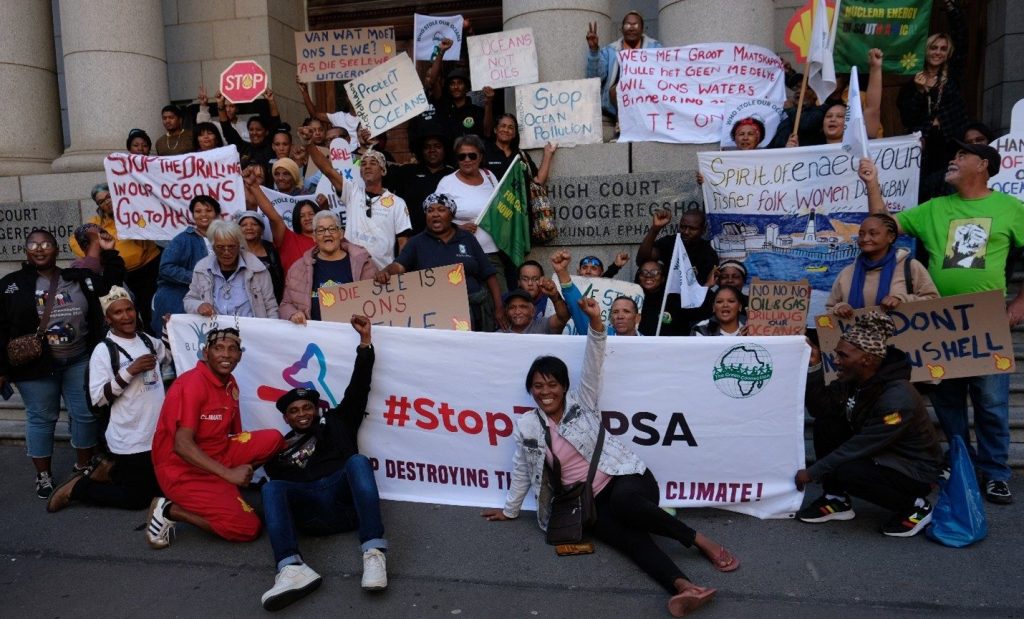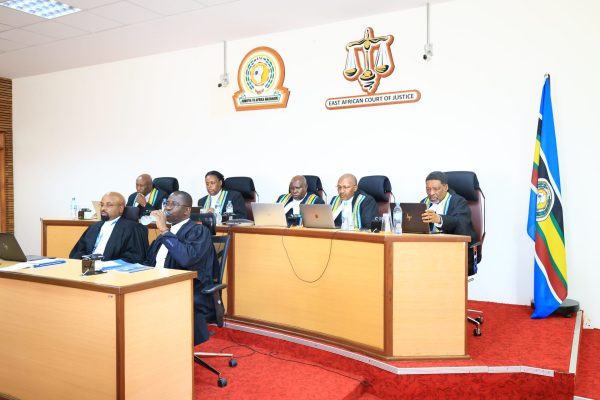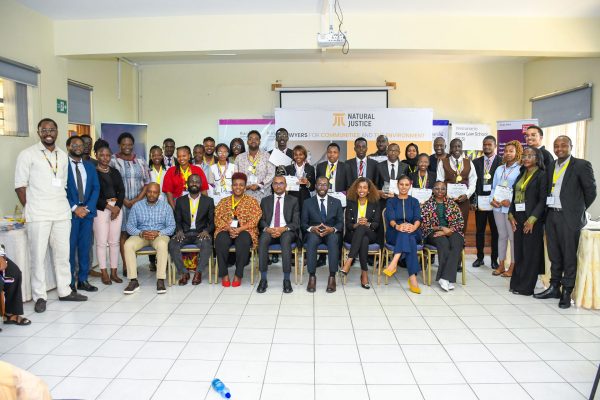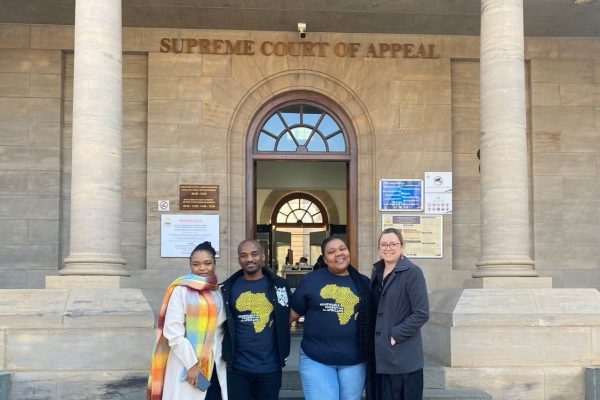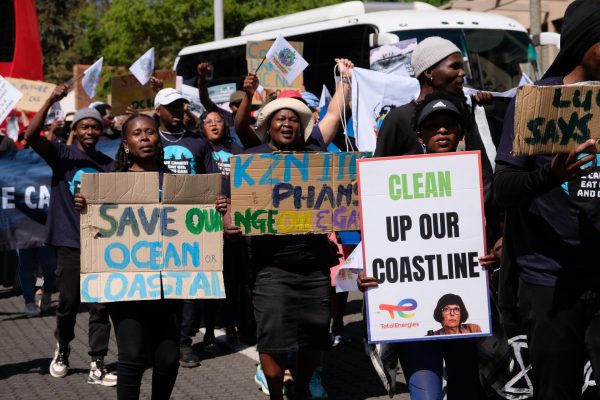The state of the South African coastline
As a country known for its pristine beaches and progressive environmental laws, frustratingly over the past few years, the rate of multinational companies seeking oil and gas off the South African coastline have become incessant. While we can’t be certain, amongst the proponents of alternative technologies, it is believed that this push for fossil fuel production seems to be a last attempt by these multinationals to keep their business thriving and their profits coming in.
As the tide turns and climate change impacts become real, the exploration rights attached to the blocks off the South Africa have become valuable commodities. This is because companies taking the “business as usual approach” are no longer popular in countries from the “north”, forcing these companies to seek other waters. African countries with their vast resources have becoming a playing ground for the extractive industries.
To the north and east of South Africa, Namibia and Mozambique are baring the repercussions of weakened civil society organisations and oppressive governments. In Mozambique, specifically, the Total takeover of Cabo Delgardo province has resulted in a rise in terrorism, land grabs and civic abuses. The introduction of Recon Africa into Namibia has resulted in communities losing access to their resources, the silencing of activists and failure to adhere to laws.
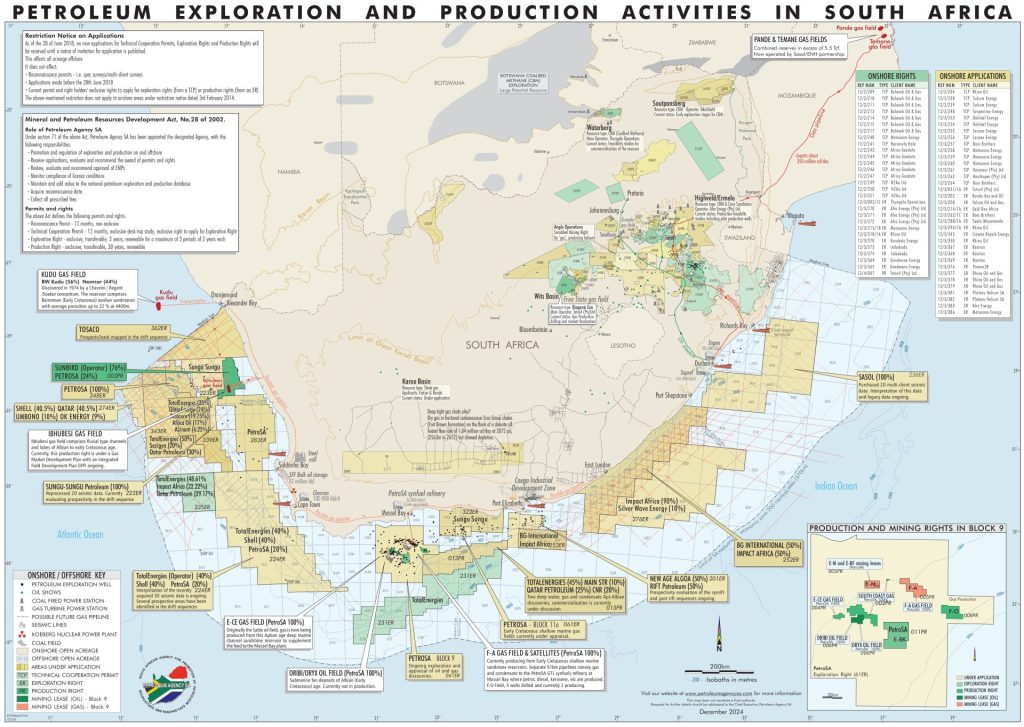
Taking the industries to court
In my home country, we have long been lucky to have a flourishing civil society, a strong Constitution and a history of successful litigation. I thought about this as I sat in the Cape Town High Court, listening to arguments brought before the court as to why TotalEnergies SA should not be allowed to go ahead with drilling for oil and gas off the southern coastline of South Africa.
The hearing took place over three days in May and we’re currently waiting for the judgment in the matter.
Outside, supporters from up and down the coastline, mainly small-scale fishers, chanted the new breed of struggle songs – Panzi Total, Panzi! (Down, Total, down!). Inside the court, activists and lawyers from Natural Justice and The Green Connection strained their ears to hear the arguments from Total Energies, as well as the State.
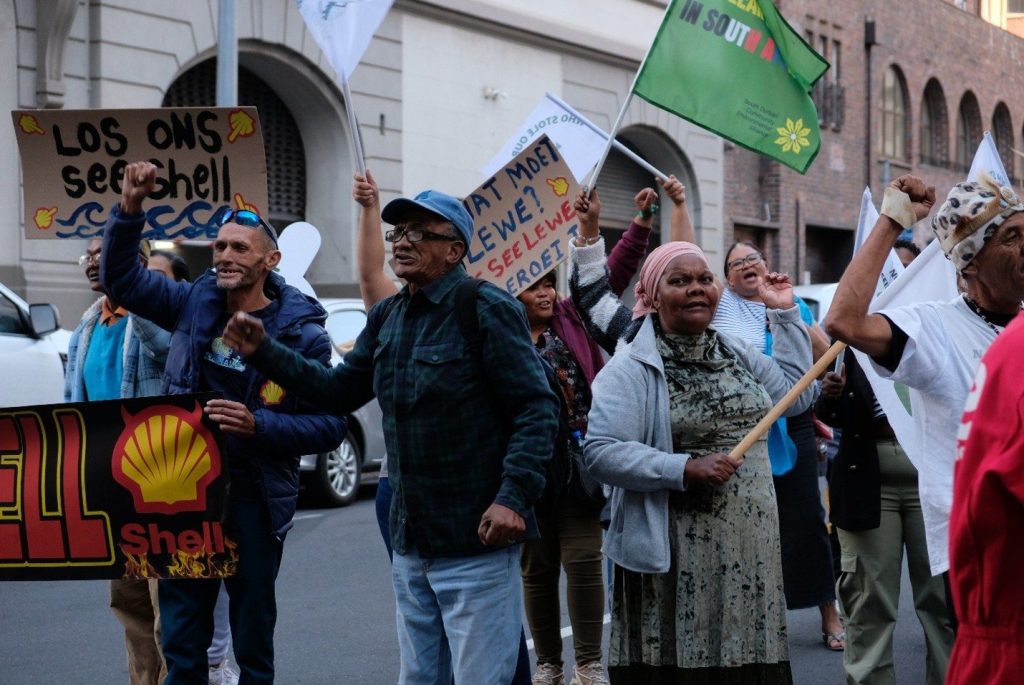
Why are we in court?
The case is centred on the exploration right that was granted by the Department of Mineral Resources to Total to explore for oil and gas in Block 5/6/7. Subsequently, an Environmental Authorisation (EA) was granted by the same Department in 2023, and confirmed by the Minister of Forestry, Fisheries and the Environment despite 18 appeals filed against it. The case before court is a judicial review application, asking the court to consider whether the EA should have been granted. Very close to the court date, we heard that Total wants to transfer the EA to Shell, who would then become the operator. Total then applied for Shell to join the court case.
During day one of arguments, The Green Connection and Natural Justice’s counsel made five arguments as to why the Environmental Authorisation should be set aside. These grounds for review covered concerns about the impacts on fishers and coastal communities, concerns about climate change linked to eventual exploitation of the resource, as well as technical concerns, such as the failure to include a proper contingency plan for a well blow out or oil spill in the environmental impact assessment documentation. The organisations (the applicants in the case) also argued that the impacts of an oil spill on Namibia should have been considered in the impact assessment process.
Need and desirability
A very important part of the case is the matter of need and desirability. Two points needed to be considered by the authority making the decision – and these are based on South Africa’s own policy positions. The first is that South Africa has a duty to reduce our greenhouse gas emissions – an international obligation found in our Nationally Determined Contribution (which is under review this year). With South Africa’s reliance on coal, we are embarrassingly high ranking as a significant greenhouse gas emitter.
The second point was around our Integrated Resource Plan. This plan sets out what kind and the amount of electricity we need to produce to meet our needs. In the 2019 plan, which is outdated, gas is only a minimal contributor.
Based on these two positions alone, there should be no more oil and gas development!

The joinder and why Total wants Shell in court
A somewhat confusing part of the case involves the transfer of the exploration right and environmental authorisation to Shell. Total applied for Shell to be joined to the case although Shell has not yet been transferred the environmental authorisation.
But even before this, we wondered if the exploration right, was in fact valid. The exploration right was granted 12 years ago. According to Total, it requested its third and final renewal of the right more than three years ago – but no decision has been made by the government. Based on this, Total beleives that the right is valid. However, how can the state allow a company to continue to use a right that is in renewal stage, seemingly in perpetuity, until government makes a decision on it? In court, we argued that this right cannot still be valid, which means that there is no right to be held by Shell.
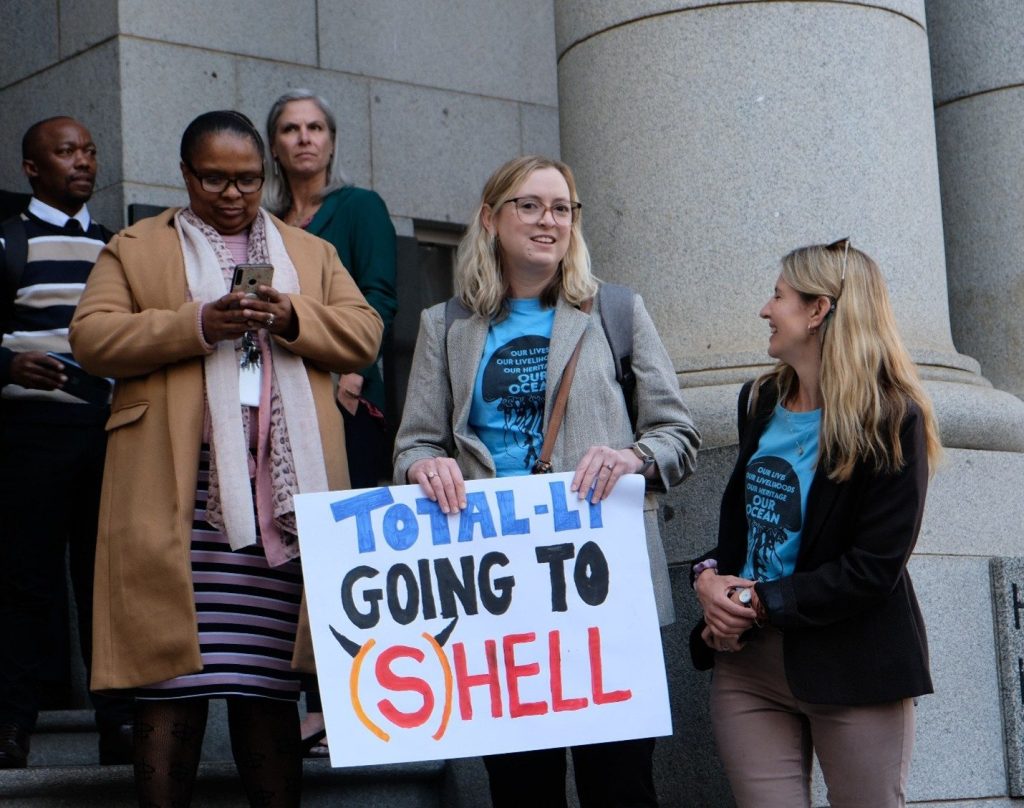
What Total and the State had to say
During day two, counsel for TotalEnergies and the State Respondents made their arguments. TotalEnergies and the State argued that the information before the Director General and the Minister was sufficient to take an informed decision, and that they did not have a duty to consider the climate change impacts relating to eventual resource exploitation or transboundary impacts, such as the impact of an oil spill on Namibia. They also argued that Total’s generic well blowout contingency plan was enough.
When it comes to issues of environmental justice, we did not feel these arguments were fair. Firstly, we cannot separate exploration and exploitation. If oil or gas is found, then it will be exploited and there will be greenhouse gas emissions.
Secondly, we feel that South Africa must consider the risks of drilling wells into the ocean floor, including the risks to our neighbours. An important point was made by our counsel. He told the court that although the risk of a well blowout is low, the results would be catastrophic. Although Total and the state may pay compensation, when it comes to oil or gas disasters, it will be the poorest that will be hardest hit. A small community of fishers may never recover, and compensation may come too late. Is this a risk we should be taking?

Accusations of anti-development
It was during day two of the court case that certain accusations were aired, that is frustrating for us as civil society. This came about when Total and the Department of Environment had to argue whether Natural Justice and The Green Connection were expected, in the event of us losing the case, to pay for the costs of the case.
As has become a common refrain at corporate energy events, at press events and generally, the NGOs were accused of being anti-development. We were told that “Total wants to leave South Africa” because of us, and that we “have an agenda”. (Nevermind that Total holds other offshore rights, and recently started environmental impact assessment process for a second area of interest in the Deep Water Orange Basin block.) As such, we should get a punitive cost order against us.
Yet, under court precedent, and in the law, those bringing cases in the public interest, should not have to pay the costs of the opposition counsel, even if they are unsuccessful in vindicating their rights. Their arguments showed the true character of TotalEnergies and the State.
This is a chilling reminder that the fossil fuel industry will stop at nothing to hurt its opposition. The attack on the ideological and scientific underpinnings of our work, although just words in court, is turning ugly in many countries. Many of us are still reeling from the recent US incident in which Greenpeace was sued by Energy Transfer for USD600 million.
While we stand on the right side of history, in a country with a semblance of freedom, we are reminded again of the forces we are up against. In court rooms, away from too much public scrutiny, the real thoughts about us come out.
It is a reminder that the pursuit of good will come under scrutiny. We have yet to hear the judgment from court, but should we win, not only will it be a win for our coastline, the fish, the fishers, but a vindication of our belief that we are doing the right thing and that is requires many small actions from many committed people to change the world.
Claire Martens is a Communication and Media Coordinator at Natural Justice, who was present during the three-day court proceedings of the Block 5/6/7 case argued in Western Cape High Court on 5, 6 and 7 May.
Learn more about the case through the factsheet: https://naturaljustice.org/publication/factsheet-block-5-6-7-off-western-cape-coast-between-cape-town-and-cape-agulhas/

